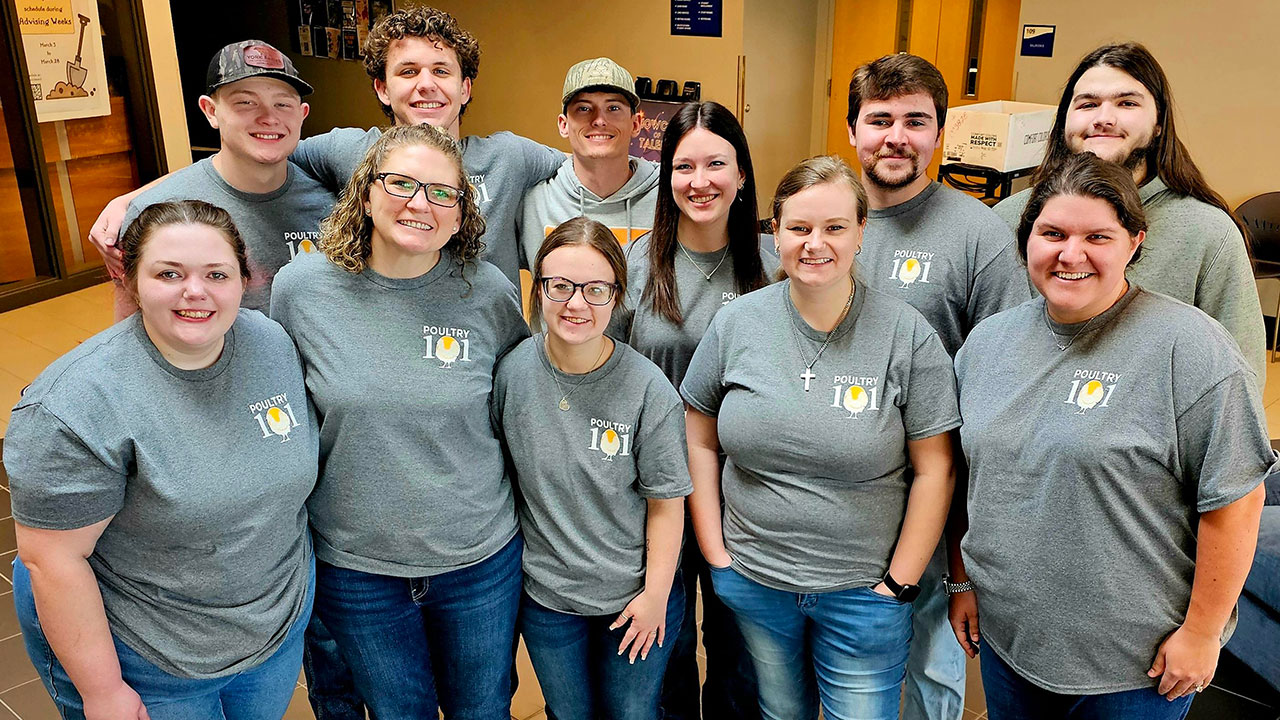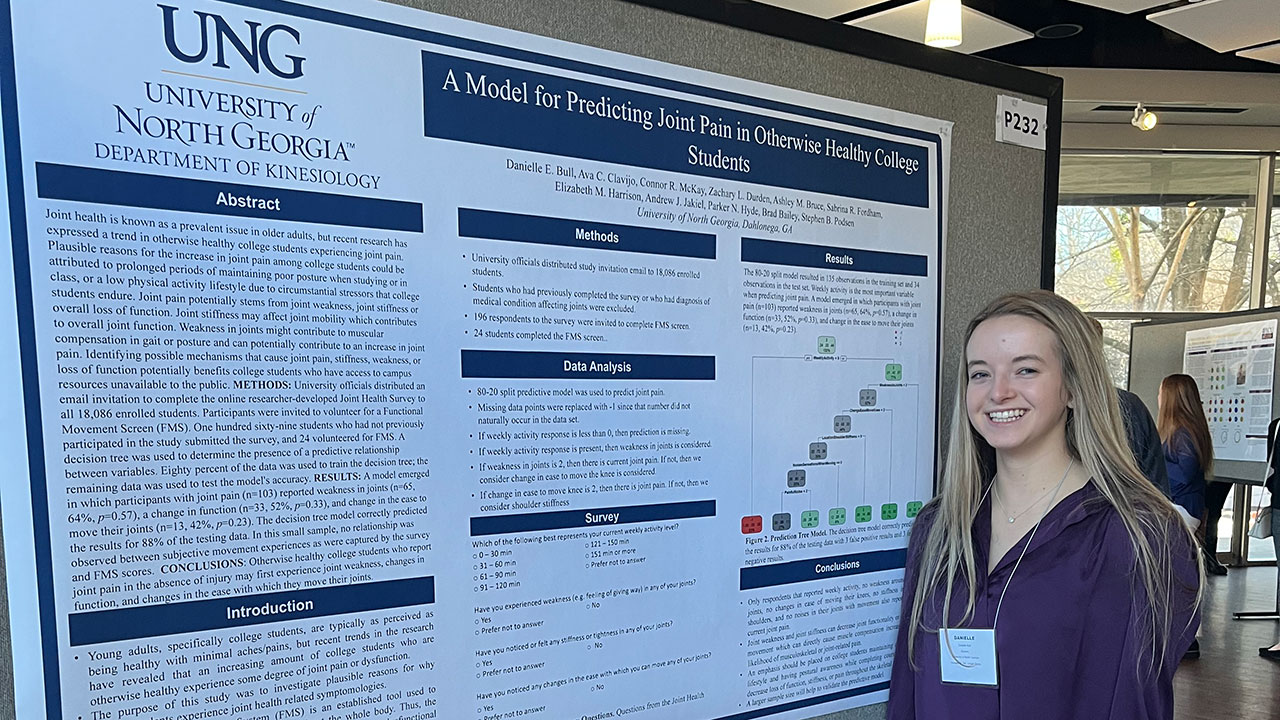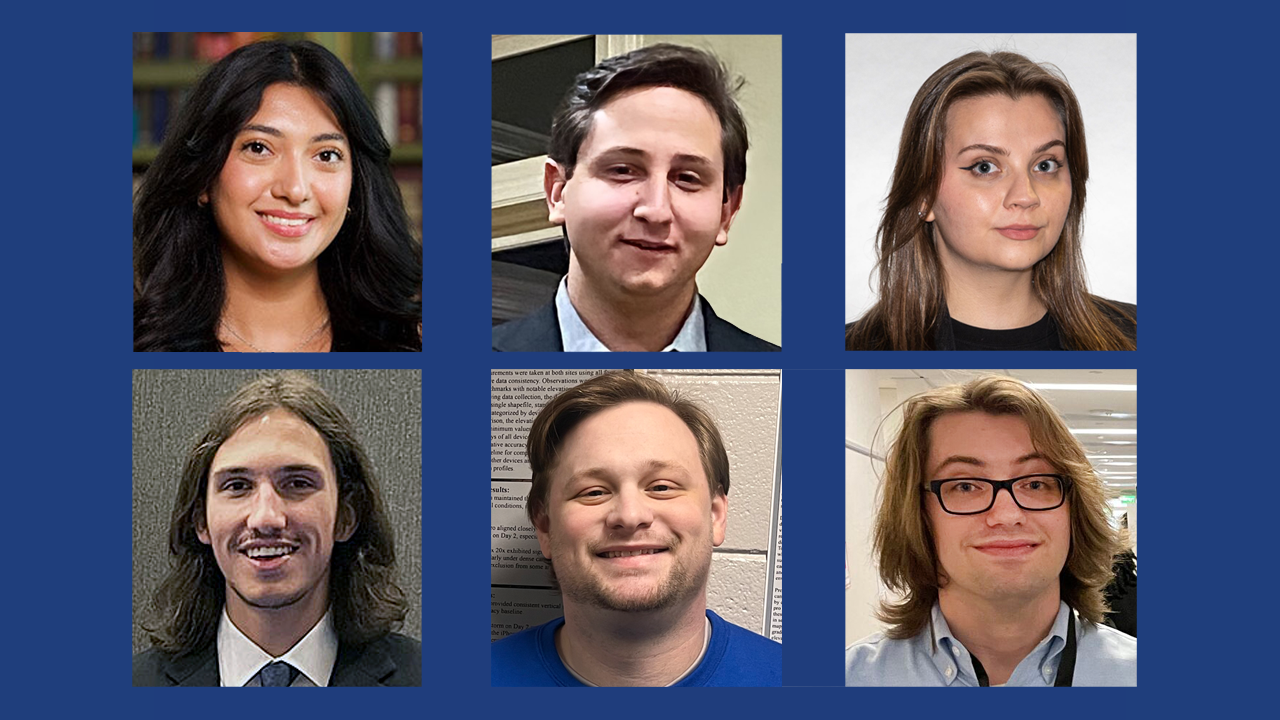UNG in top 10 percent of schools producing physics undergraduates

Article By: Staff
When Ryan Duke started his college search, he wanted to be more than a face in a crowd. He wanted his professors to know his name and vice versa. So he chose the University of North Georgia (UNG).
"I liked the idea of a smaller school … and not be just a number," said the senior from Lawrenceville, Georgia, majoring in physics at UNG.
Duke, however, was unaware UNG is in the top 10 percent of schools producing students with bachelor's degrees in physics, according to the American Institute of Physics (AIP). The data from the "Roster of Physics Departments with Enrollment and Degree Data," 2016 survey was conducted in fall 2016, published in September 2017, and updated in December.
Looking at Georgia universities with bachelor's-only programs, UNG is No. 1 with its 16 physics degrees awarded in the 2015-16 academic year. The second school is Augusta University with 10.
Duke was not surprised.
"We have really great professors," he said, adding he can reach any of them when he is struggling.
Dr. Richard "Dick" Prior, head of the physics department at UNG, agreed.
"I think the faculty is better than it has ever been," he said.
From 2012-17, the number of bachelor's degrees awarded to physics majors jumped to an average of 18.29, marking a 143 percent increase from the previous average of 7.5 physics degrees during the 2001-11 academic years.
"Part of that increase was due to an increase in enrollment," Prior said, indicating the merger between North Georgia College and State University and Gainesville State College in 2013.
The physics department has undergone some evolutionary changes, including the establishment of a physics study room on the first floor of Rogers Hall on UNG’s Dahlonega Campus. It gives physics students a place to congregate, study and make friends, Duke said.
 |
|
Early in his collegiate career, Duke worked on a research project titled "Two Dimensional Paraspinal Muscle Segmentation in CT Image" with Dr. Yong Wei, professor of computer science at UNG, and |
"If one student is struggling with a concept, he or she can ask another student how they got to an answer," he said.
Prior said this kind of camaraderie makes UNG's physics program unique.
"I'm always amazed at the quality of students that we get," he said. "It helps to have good raw material."
So far those students are making a mark. Based on the AIP report, of the 750 schools offering bachelor's, master's and doctoral degrees in physics, only 139 have higher graduation numbers or tie UNG. This means UNG ranked in the top 20 percent of all schools producing physics graduates, regardless of degree level.
Schools besting UNG's number of 16 graduates from 2015-16 in the state are Georgia Institute of Technology (31), Georgia State University (22) and University of Georgia (19). Emory University tied UNG at 16 graduates.
One of the main differences between UNG and those schools is they have doctoral programs.
Prior indicated UNG has become a pipeline for those schools. "Our kids do fine there. We treat them good and teach them well."
2017 UNG alumna Anela Holdaway couldn't agree more. She earned a dual-degree in physics from UNG and biomedical engineering from Georgia Tech. She credited UNG's size and commitment to its students to helping her find a career and pathway to achieve it.
Holdaway explained after her first physics class as a freshman, she approached her adviser to ask about the research she was doing. The faculty member allowed her to join the research, which led to Holdaway earning a Research Experience for Undergraduates (REU). The REU program supports active research participation by undergraduate students in any of the areas of research funded by the National Science Foundation. Projects involve students in meaningful ways in ongoing research programs or projects.
"It gave me the foundation to realize what I was passionate about," she said, adding the faculty members are dedicated to the students. "They care about physics and want you to get more than a piece of paper at the end of your collegiate career. They want you to understand and learn physics, what it means and how physics will help you get into a master's and Ph.D. program."



